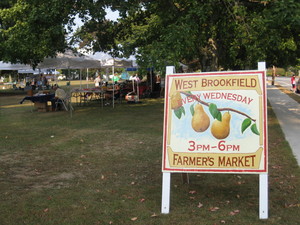08 Sep Wed 2010
Never too late for composting
I have always had a compost at my house but I can't always say it has been a good one. This fall, I am changing that and putting my best foot forward to have a productive compost. I have spent quite a bit of time reading about composting and what to add and not to add and thought I might as well share some basic tips for those who wish to join the composting bandwagon.
Right now, I have a square bin with a wooden frame and wire mesh sides. The bin has removable sides so that I can disassemble it and move it over when I want to turn the pile. That much I do correctly. What I realized though is that i don't consistently add green and brown materials to the compost to get it to the proper 'cooking' temp. I sometimes add grass clippings but mainly I add kitchen waste and I have found that it does not breakdown the way it should.
For those who don't have a bin yet, you can use a variety of materials....lumber, chicken wire, bricks, concrete blocks or hay bales. Make sure there are enough openings in your bin to allow air to pass through and "feed" the bacteria in your compost. Organize some organic materials into two piles, green and wet (nitrogen fixers) and dry and course (carbon). Start by layering the bottom of the bin with some course materials like chopped cornstalks or brush. Top with some grass clippings then some garden soil. Top that with something dry and course like hay or straw and then begin the layering process over again with grass clippings or kitchen waste, soil and a dry and course material. Build it to about 3 feet high and turn periodically. When it starts to breakdown some, you can flip it, moving the top layer to the bottom. Spray with a little water and keep adding your material. If you have a two bin system, you can remove the finished or nearly finished material to your second bin where it can turn into useable compost.
Not sure what's good compost material and what's not? Here are a few items that are easily found in your house or yard that you can use for your compost: Coffee grounds, corncobs or stalks, eggshells, fruit and vegetable wastes, hay, leaves, manure, pine needles, sawdust or wood shavings, weeds (cut before seeds set), wood ash, and grass clippings. Some final tips: don't layer grass clippings too thick, don't throw any meat or dairy products into compost (vegetarian only), don't let the heap get too wet or too dry (the consistency of a wet sponge is good) and finally, chop up leaves and other materials with your lawnmower for easier breakdown. The smaller the pieces the faster the decomposition. So, I am putting my advice to work and if all goes well, I will have great compost for my garden in no time. Happy Composting!
(Tips taken from Organic Gardenings best Kept Gardening Secrets)

